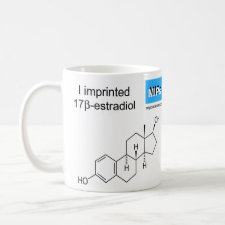
Authors: Ye L, Mosbach K
Article Title: Molecularly imprinted microspheres as antibody binding mimics.
Publication date: 2001
Journal: Reactive and Functional Polymers
Volume: 48
Issue: (1-3)
Page numbers: 149-157.
DOI: 10.1016/S1381-5148(01)00050-5
Alternative URL: http://www.che.utexas.edu/research/biomat/PDFReprints/ReactivePolymers_48_149-157(2001).pdf
Abstract: Molecular imprinting is an emerging technique for preparing artificial antibodies that have potential applications in affinity-based separations, biomimetic sensors and assays. The conventional imprinting methods either deliver a monolith that is mechanically ground to irregular particles - a time- consuming process with low yield, or involves complicated polymerization process by which spherical beads may be obtained, but with frequently compromised binding specificity. We have recently developed a novel molecular imprinting method that can deliver microspheres bearing imprinted binding sites, quickly, cleanly and in good yield. Imprinted uniform microspheres are synthesized by precipitation polymerization of a dilute solution of functional monomer and crosslinker in the presence of a print molecule. The method is generally applicable to a large variety of target molecules. For the first time, an enzyme probe is successfully used in a competitive herbicide assay using molecularly imprinted microspheres as the affinity adsorbents. (C) 2001 Elsevier Science B.V. All rights reserved
Template and target information: theophylline, 17β-estradiol, E2, 2,4-D, 2,4-dichlorophenoxyacetic acid



Join the Society for Molecular Imprinting

New items RSS feed
Sign-up for e-mail updates:
Choose between receiving an occasional newsletter or more frequent e-mail alerts.
Click here to go to the sign-up page.
Is your name elemental or peptidic? Enter your name and find out by clicking either of the buttons below!
Other products you may like:
 MIPdatabase
MIPdatabase









